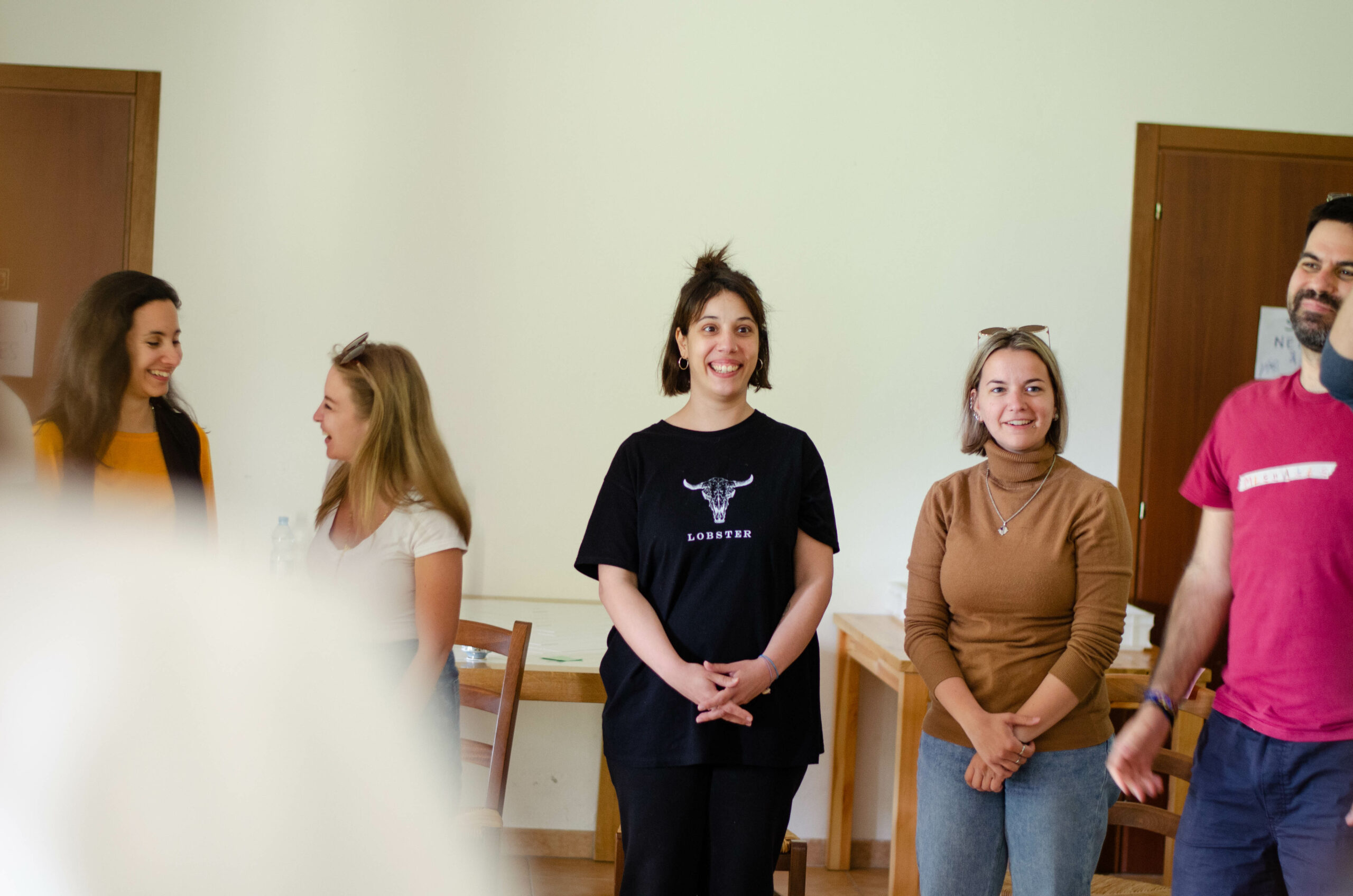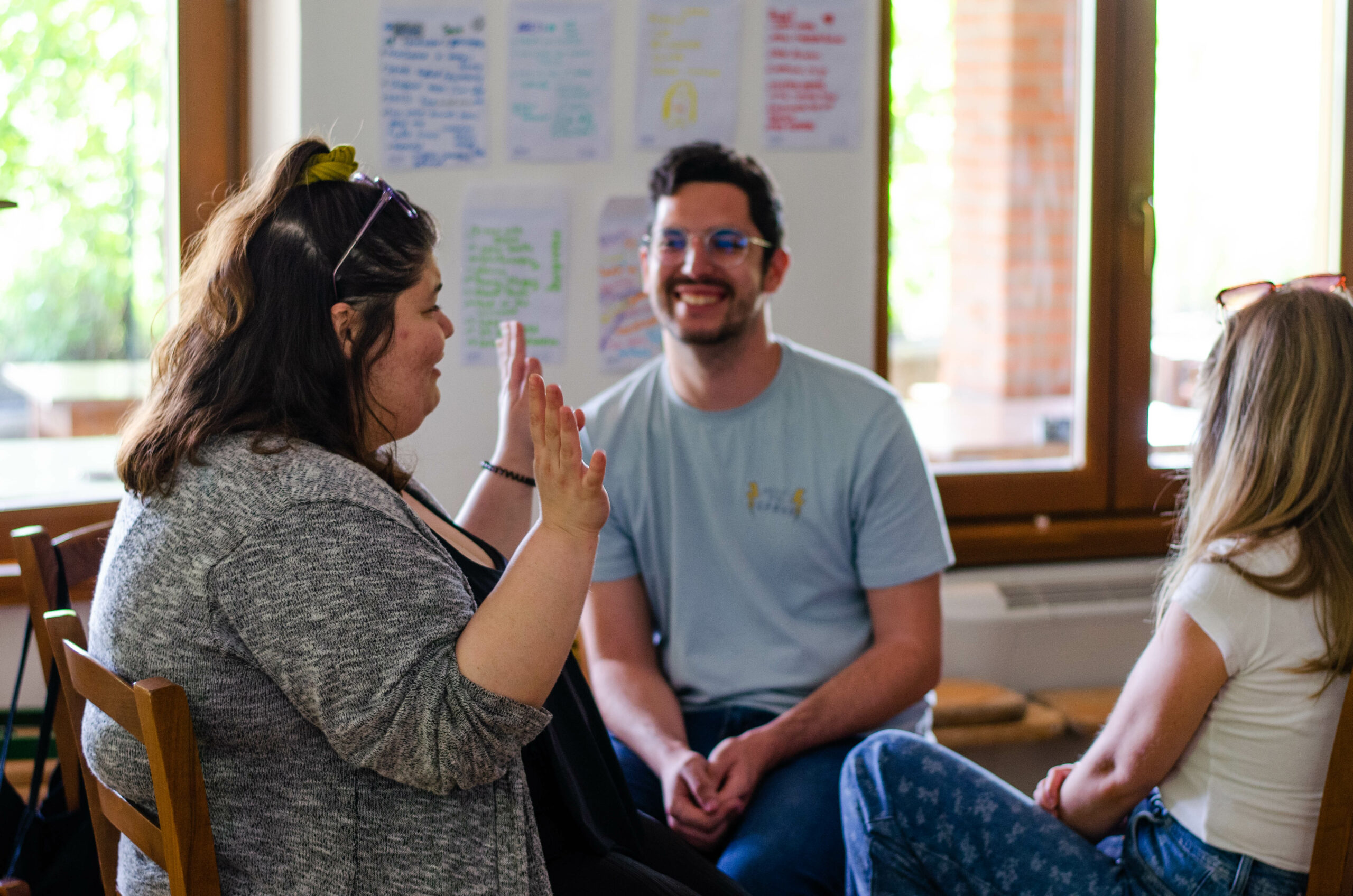The training for youth workers aimed to provide them with the knowledge and competences about inclusive approaches and principles, theatre methodologies and practices, digital youth work and NFE to implement inclusive activities applying methodologies and practices used mostly in the field of theatre which can be implemented also in digital youth work.
During the training we also assessed and validated the efficiency, clarity, exhaustiveness and usability of the content of the Manual and some of the activities prepared, to connect youth workers from different realities and countries, and get the youth workers ready to deliver the local piloting.
Youth workers involvement was also fundamental in the production process of results, providing feedback, adjustments or integrations. During the training youth workers shared experiences, ideas and best practices.

28 youth workers coming from the partner organizations, their close associated partners and main local stakeholders and organisations to ensure diffusion and early transfer of the results prepared, participated in the LTTA in Morfasso (Italy) on 4-10 May 2023.
This training led youth workers to experience the inclusive activities proposed and the most suitable digital tools to improve the quality and inclusivity of their youth work. Self-reflection and interaction with other participants and trainers was the dimension in which trainers worked to improve, empower and expand knowledge and competences in inclusion, theatre, NFE, and (digital) youth work.
OBJECTIVES
– Work on and raise awareness towards inclusion, theatre methodologies and practices, NFE and digital youth work and achieve the connected competences
– Present the opportunities and tools to implement youth work in a digital environment and with digital tools and components
– Assess the results and use them as a base for the training
– Involve them in the assessment, production, finalization and dissemination of results
– Get ready for the pilot with youngsters and prepare youth workers to use the results
– Develop professional competences and increase their efficiency
– Improve the quality of youth work
– Introduce the reflection as a tool (based on the key competences in the Youthpass) of learning
– Connect youth workers and create a learning community
Different working methods were applied during the training, such as interactive workshops, presentations, role plays, world-café, living-library, concentrating on the active involvement of participants.


